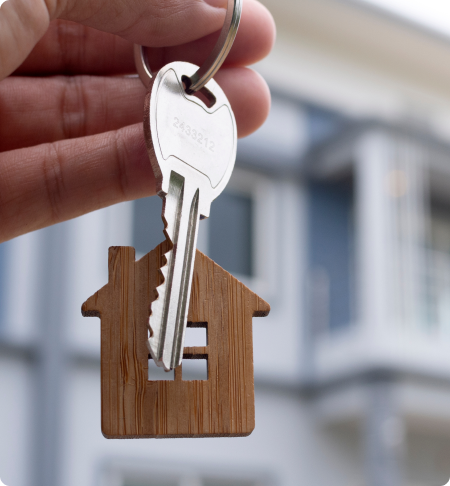- THB
- USD
- EUR
- JPY
- CNY
- AUD
- CAD
- CHF
- GBP
- HKD
- Square Feet
- Square Meters
Guide For Buying A Property
In Pattaya, Thailand

When looking online for an answer as to whether or not a foreigner can own a property in Thailand, you can never quite find a straight answer. The reason being is that there isn’t really a straight answer to the question. It’s more complicated than a simple yes or no.
That being said, just as buying a property in your home country is a relatively complicated process, in Thailand, there’s a little bit more work involved. This means that if you’re patient and follow the right guidelines, you shouldn’t run into many problems.
In this article, we’re going to outline everything you need to know about buying a house in Pattaya, Thailand.
It is possible for a foreigner to live permanently in Thailand. The official way would be to obtain permanent residency, but that’s not without its difficulties as there are certain conditions which must be met. We covered some of the changes which made the process for retirees harder here and generally you may want to liaise with one of the top visa companies in Pattaya to make sure you approach the task appropriately. You can also explore retirement visas, or simply working with a non-immigrant visa and permit. There are certainly a number of ways of remaining in Thailand permanently, but prior planning and arranging documentation are needed.
It really depends on why you’re purchasing the property. There are laws to regulate ownership and the buying process. Ownership laws are rather stable and there are almost no more risks in Thailand when compared with Europe, to be expropriated. However, if you are married, have children, or a comfortable living in Thailand permanently, then it is certainly safe to do so, providing you follow the correct channels. On the other hand, if you’re buying property in Thailand in order to rent it out or flip it for profit, then there are always risks involved like with all real estate. We recommend discussing your goals with a professional, so you can be sure to follow the correct processes.
There is such a thing as an investment visa, however, this isn’t a long-term solution to your residency needs. You may still need to explore other options if you’d like to remain permanently.
How to Open a Bank Account in Thailand?
Whilst on the subject of buying property and moving money about Thailand, here is what you’ll need when opening a bank in Thailand—you’ll be pleased to learn that the process is not much more complicated than what you’d expect in your home country:


be needed for Bangkok
Bank) or Certificate of
Residency.

rental agreement,
Yellow house book, or
other proof of address.

license, etc)

deposit (500 baht
minimum for some banks)
Can I Own Land as a Foreigner?

Basic Thai Ownership Law dictates that land can only be owned by a Thai citizen or permanent residents (with an exception for BOI companies). As a consequence, 51% of all sellable units in a condominium are for Thai Nationals (Thai Quota) and 49% are for foreigners (Foreign Quota).
When you purchase a condo, sold as part of the Foreign Quota, you are entering into a long-term freehold agreement, with full ownership in your name.
Unfortunately, foreigners are unable to own land in Thailand (unless of course, you have managed to achieve your permanent resident status). As such the purchase of a plot of land, would need to be 51% registered with a Thai National or be purchased through a Thai company where a minimum of 51% of the shares should be held by Thai shareholders.
However, this doesn’t mean that you’re unable to buy a house and live comfortably on said land. There are other ways around it, which we will get to in a moment, but first let’s look at how land is measured in Thailand:
In Thailand, the size of land is expressed in Rai, Ngan and Square Wah (or Talang Wah).
One Wah = 2 metres, and thus one Square Wah (2X2 metres) = 4 square metres.
One Rai, the biggest unit, is 4 Ngan, 400 SQW, or 1600 sqm
The answer is yes! There are no restrictions on age limit for Thai nationals owning land or property. However, whether or not the land departments accept is down to their discretion, so you should not think of having the land and property in your child’s name as a guaranteed fix. It is, however, something worth exploring.
If you are interested in investing in land in Thailand, you will have to invest in a majority Thai company (51% of shareholders of Thai Nationality). However, using a majority Thai company merely to get past Thai law restricting foreign land ownership is illegal.
If you are a minority shareholder in a legitimate Thai company, then you may own real property in Thailand through that company. If you are the director of said company and have amicable relations with the Thai shareholders, then you essentially own the property through the control of the company. You may even decide in the future, with the consent of the other shareholders, to sell the company with the property asset.
Technically speaking, anyone can be a shareholder in a company at any age. However, they cannot be registered as “Managing Director” until the age of 20.
Can I Own Land as a Foreigner?

Typically speaking, houses tend to be cheaper than condominiums per living space SQM. There are reasons for this and of course, pros and cons to choosing a home over a condominium.
- Condos are in safe and contained complexes with 24-hour security
- There is generally a ‘building management fee’ included
- Some condos are serviced apartments including weekly cleaning service
- Condominiums tend to offer additional amenities such as a communal gym, swimming pool, and restaurant / bar area
- Condos can be in key real-estate area such as on the beachfront with sea-view apartments

There are many other benefits to living in a condo, but these tend to be the reason why they are more expensive per the SQM when compared to a house.
- Houses are quiet and private (no sharing your swimming pool with strangers)
- Particularly in Pattaya, Pet-friendly condos are very hard to come by with only 2-3 listings. Houses are generally Pet Friendly, leaving you with many more options.
- Houses tend to offer a significant amount more space and are more suitable for families
- Whilst condos tend to be in the better (busier) locations, houses are ideal for those who enjoy their peace, quiet, and privacy
The Buying Process
The buying process is similar to what you’d expect, in that you find a property that you’re interested in, view it, then begin the negotiation process. Only, there’s a few extras thrown in to the mix as well.
- Pay your deposit and take the property off the market
- Negotiate contract
When buying property in Pattaya, Thailand, the typical deposit paid will be 10% of the unit cost, which may be negotiable depending on who you work with. As a rule of thumb, the contract will detail the conditions and status of the deposit and the balance payment will be paid within the term of the contract, with deposits going toward the overall payment amount. If you decide to purchase another property after you sign the contract, you will, however, lose your deposit.
When transferring money from abroad into Thailand, the best way to do this is transfer it over in the original currency (e.g., GBP, USD), and then convert into Thai Baht (THB). You will also need a Foreign Exchange Certificate or Foreign Exchange Transaction Form. It is the official document prepared under BOT regulations to report foreign currency exchange transactions in Thailand. It should feature the following information:
- the transferred amount in foreign currency
- the transferred amount in Thai Baht
- the name of money sender
- the name of money receiver
- the purpose of transferring the money.
All money for the purchase of a condo must be sent to Thailand from a foreign country in the original currency. Without proof of this, a foreigner cannot register the condo in their name.
There is a misconception that foreigners are unable to get a loan or mortgage in Thailand, but that is not the case. It is indeed possible for foreigners to access property financing in Thailand, however, the conditions are rather restrictive and in most cases, Foreigners become Guarantors for the Thai Buyer (Wife or Long-term companion). One such stipulation that Thai banks place on mortgages is that a lender can’t hold a home loan past the age of 60. The assumption is that people over 60 lack the income to repay a sizable mortgage. We recommend getting in touch with a Financial institution for details, but a Singaporean Bank such as UOB is known to offer Mortgages to Foreigners in Thailand.
Property tax in Thailand is complicated and as of July 2020, the details for are as follows*, please remember things can change quickly and to check with our consultants for up to date info.
- If the 1st Property value is less than 50 MB then no property tax is due. However, the owner must have his/her name in the house book only. Given how Foreigners cannot be registered in house book alone due to ownership laws, you will pay a property tax rate of 0.02% on the first property.
- If the value of the 1st Property exceeds 50 MB then you will pay the new property tax rate 0.02% (1 MB= 200 Baht/year)
- For 2nd owned property you must pay the property tax of 0.02%
- COVID-19 – The Thai government recently announced a 90% discount on property tax because of the Pandemic for 2020 only. (It is currently not clear whether these taxes are retroactive or not)
These taxes apply to all cases, whether personally owned or in the company name.
When it comes to business tax upon the sale of a property, a levy of 3.3%* of the registered sale price or appraised value will be required to be paid (if the property is owned for less than 5 years*). This is made up of 3% business tax, and 0.3% local tax.
*the Thai tax system can differ from province to province and the above details are specific to Chonburi, as well as being subject to change. We recommend contacting one of our agents for more details on your specific situation.
In a situation where a Foreigner owns a property through a Thai Company (Thai juristic entity) and uses the house as his/her holiday home or residence, the same tax rules as the previous section apply*.
- If the 1st Property value is less than 50 MB then no property tax is due. However, the owner must have his/her name in the house book only. Given how Foreigners cannot be registered in house book alone due to ownership laws, you will pay a property tax rate of 0.02% on the first property.
- If the value of the 1st Property exceeds 50 MB then you will pay the new property tax rate 0.02% (1 MB= 200 Baht/year)
In the case where Property is used for business or other purposes, but not for living (Land or buildings). The following Tax applies*,
- 0-1,000 MB pay property tax 0.3% (1MB= 3,000 Baht/year)
- More than 1,000 MB property tax 0.7%
*tax rules are always changing and with new 2020 rules like above, it is important to check with a Tax Lawyer before making decisions.

Is it Worth Working with a Lawyer During the Purchase of a Property?
The short answer is yes. When looking at buying a condo in freehold, your real estate agency will be able to handle all of the processes easily enough, so a lawyer may not be necessary. However, if a Thai company is involved in the process, then it’s always safer to work with a lawyer. This will allow you: unbiased due diligence, the additional setting up or transferring of a company (if applicable), liabilities and control with shareholders, and of course, greater experience when it comes to dealing with complex contracts and legal documents.
Conclusion
And there we have it! That should be enough information on the home buying process in Pattaya to get you started. Understandably, reading all of this will likely leave you feeling a little overwhelmed or confused. This is why it is paramount that you work with a reputable real estate agency who can guide you through the motions, and consider hiring legal advice to assist you from start to finish.
There are many things to consider and be mindful of when buying property in Thailand as a foreigner, but if done correctly and with the appropriate guidance, it is entirely doable, and irrefutable worth the effort.
Providing you do you due diligence, take your time, and do as much research as possible before rushing into an agreement, you shouldn’t run into too many issues. Then, you’ll be able to find your dream home and live in one of the most beautiful tropical destinations in the world.
Thailand is a truly spectacular place to live and it is within your reach! If you would like us to assist you with the process of buying a property in Pattaya, Thailand, then please feel free to contact us today at your convenience. We will gladly elaborate on any of the information listed in this article and help you further comprehend where you stand in regard to the property market and your eligibility.
